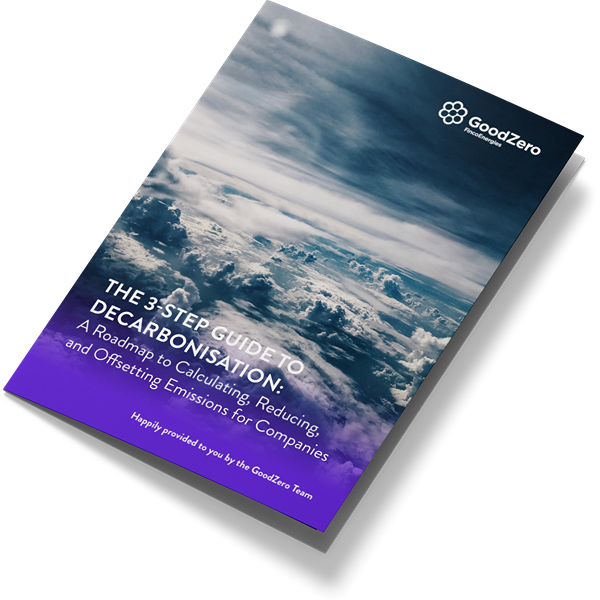Embracing a moral imperative - The vital role of voluntary carbon markets in global climate action


Immediate impact and long-term sustainability
The voluntary carbon market is a crucial mechanism. It enables diverse organisations to make impact or to compensate for its unavoidable emissions in the form of carbon credits. Its significance in valuing the services ecosystems provide, particularly in carbon storage, cannot be overstated. This market, while not the singular solution, plays an important role in funding and enhancing the reach of nature-based solutions, actions aimed at safeguarding, managing, or reviving natural ecosystems.
Nature-based solutions effectively tackle societal issues like climate change, human health, food and water security, and reduce disaster risks. These actions adapt and provide both human well-being and biodiversity advantages simultaneously. The broader benefits of investing in nature-based solutions extend far beyond carbon impact, encompassing the preservation of ecosystems and biodiversity, increased resilience to climate impacts, and support for sustainable livelihoods. It's crucial to recognise the immediate impact and long-term sustainability these initiatives offer.
Impactful initiatives
Amidst the criticism, the necessity for nature-based solutions (NbS) remains clear. At FincoEnergies, a platform dedicated to global decarbonisation solutions aimed at assisting our clients in reaching their sustainability objectives, we firmly advocate for active participation in funding nature-based initiatives, especially in regions susceptible to climate change in the global south. We affirm a moral responsibility to persist and enhance these efforts. Currently, we lack nature-centric projects, but we're eager to include them in our portfolio. Through our impactful initiatives facilitated by GoodZero, we are committed to contributing to robust and transparent carbon markets, instilling trust and support in carbon credit projects that authentically combat global warming. The rationale behind this moral responsibility is rooted in several key factors that demand our attention and action.
Supporting biodiversity
The different types of carbon credits—nature-based and technology-based—serve specific purposes. Nature-based projects, certified by organizations like Verra, play a significant role in preserving essential carbon sinks and resources, much like nature itself does. One of nature's own resources for helping to regulate the planet's average temperature and prevent its rise is carbon sinks: natural reservoirs such as oceans, forests, and soils that absorb carbon dioxide (CO2) from the atmosphere, reducing its presence in the air.
Nature-based projects encompass a variety of projects, all crucial for addressing climate change. They include for instance REDD+ programs, regenerative farming, Afforestation, Reforestation and Revegetation (ARR). Growing mangrove forests in coastal environments provides coastal protection, and diminishes the effects of storms on people's lives and financial resources. Additionally, it creates homes for fish, birds, and diverse plant life, supporting biodiversity. Addressing the concerning rate of activities such as deforestation requires an immediate and more comprehensive systemic change.
Ethical imperative
Scientific evidence unequivocally emphasizes the indispensability of NBS for achieving the global climate goals set by the Paris Agreement.1 To stay within the 1.5°C limit, a drastic reduction in global emissions is requisite by 2030. Natural climate solutions, aimed at safeguarding, restoring, and better managing forests, soils, and wetlands, could potentially deliver up to a third of the needed mitigation by 2030. The urgency to finance these projects is evident.
Moreover, the inequality in emissions is a sobering fact—while the population and industries in the global north generate most emissions, the impact on the global south is disproportionately severe. Local communities, who are often the best stewards of nature, receive an insufficient percentage of climate and conservation funding. Therefore, it is an ethical imperative to fund nature-based projects in the global south, recognizing their vulnerability and the immense impact of climate change on these regions. Moreover, these projects are enormously beneficial for local biodiversity.
Essential step
The voluntary carbon market stands as a vital tool in facilitating financial aid directly to communities most affected by the climate crisis. Employing carbon credits can support companies' efforts to reduce their emissions. The principle behind carbon credits is that funding a project in the developing world either mitigates emissions that would otherwise persist or removes them (via planting trees, mangroves, etc.). It is an essential step toward a more sustainable global future.
It is undeniable that no project is flawless, but commencing these actions today can yield immediate effects. When evaluating carbon credit projects, a comprehensive assessment encompassing carbon impact, integrity, and broader climate, social, and biodiversity benefits is essential—a process we rigorously uphold at GoodZero. We dig deeper than just the climate impact when vetting carbon credit projects. Each project undergoes rigorous examination for its Carbon Impact and Integrity. While mistakes can occur, we prioritize the use of appropriate tools and rely on common sense to minimize errors. We demand more than just greenhouse gas impact, making sure that the right data and assumptions are used; projects have got to benefit the climate, society, and biodiversity.
Innovative projects
Therefore, we build solid, lasting bonds with developers to keep our customers in the loop. We exclusively work with developers who reinstate credit revenue into their own initiatives and communities. We believe in exceptional actions for impactful solutions. That is why we actively scout innovative projects, like Running Tide and CarbonCure. The first one being an integral carbon removal system that scales multiple natural pathways, including terrestrial and marine biomass sinking and ocean alkalinity enhancement. The second one is an award-winning carbon credit project that revolutionises concrete production by reducing and removing CO2 emissions. Their innovative technology involves injecting captured carbon dioxide into concrete.
Our portfolio covers various categories from nature-based to tech-driven, allowing clients to align with projects that match their values. We offer comprehensive services and SBTi validation, providing a framework to assess and validate greenhouse gas reduction plans. Additionally, we facilitate the retirement of carbon credits within the voluntary carbon market. Our project selection principles are strict. Therefore, GoodZero can offer clear credit trails, a balanced mix of solutions for limiting global warming, and a penchant for innovative, game-changing ideas. As a result, we are confident that our carbon credits are legitimate and can create significant change in the world.
Many companies are now pledging to achieve net-zero status, yet the complexity of achieving this goal is becoming increasingly apparent. The calculation of scope 3 emissions throughout the supply chain necessitates a deeper understanding of one's carbon footprint. This means: calculate, reduce and, along the reduction journey, offset the unavoidable emissions, using carbon credits.
Tangible tool
In conclusion, the recent criticism against the voluntary carbon market undermines our collective efforts aimed at addressing climate change. Instead, we must recognize the moral imperative to invest in nature-based solutions, particularly in vulnerable regions in the global south. It is high time for companies, governments, and individuals in the global north to actively engage in supporting these initiatives through the use of carbon credits. The voluntary carbon market stands as a tangible tool available now to amplify our impact and pave the way for a more sustainable future.
Let us not waver in our commitment to mitigating climate change and embracing the pivotal role of carbon credits in this important undertaking. Collaboration is key. To stay in reach of our goal of limiting warming to 1.5°C and to support local communities in the global south, we need to keep working together instead of drifting apart. At FincoEnergies, we firmly believe that our support for nature-based carbon credit initiatives can significantly contribute to creating a better world.

Download
The 3-Step Guide to Decarbonisation
Fill out your details below to receive the 3-step guide on how to get started with decarbonising your company's emissions. From calculating your emissions, to developing a reduction strategy and finally offsetting your truly unavoidable emissions.






